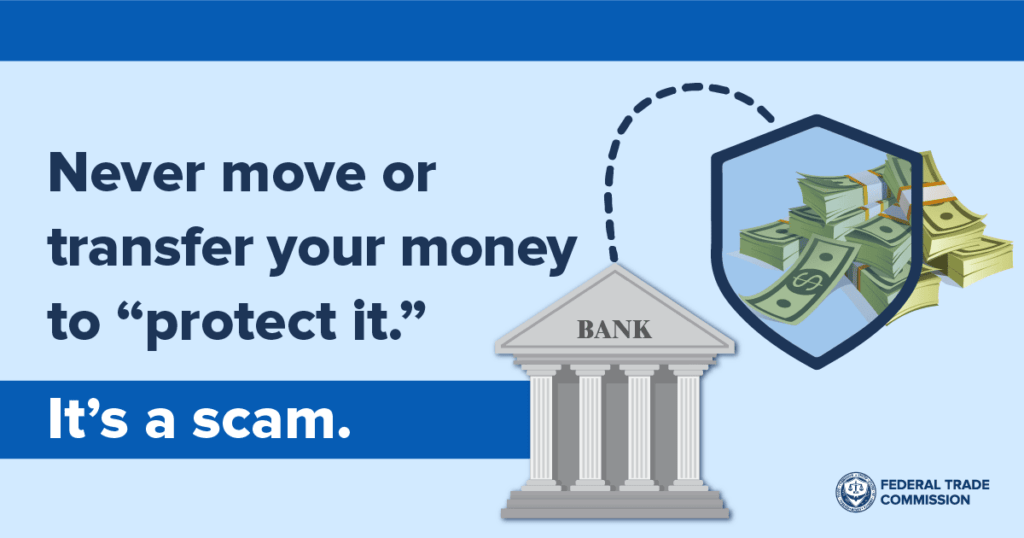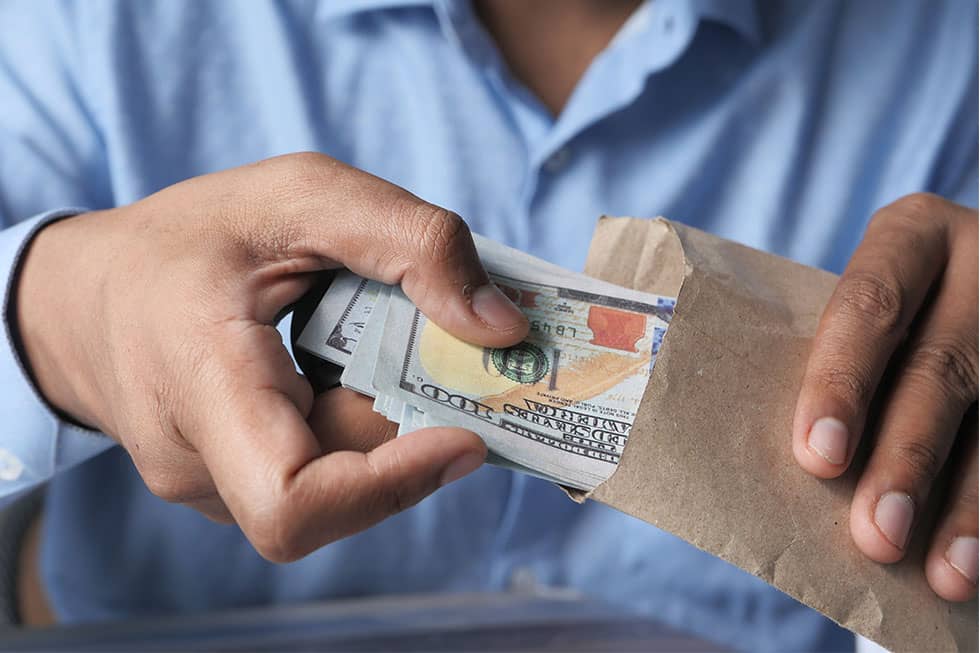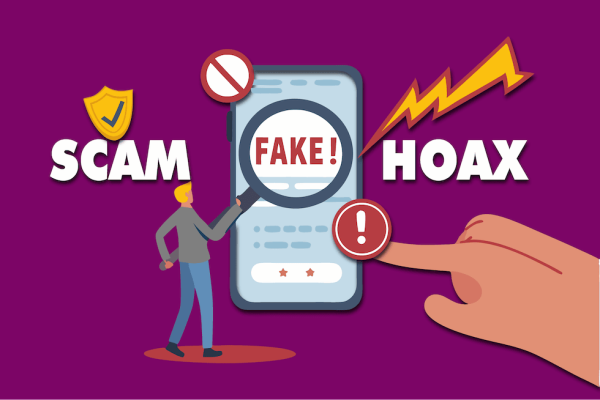Many impersonation schemes start with a call about a routine problem, like suspicious activity in your Amazon account. But in a new twist, the story quickly takes a more serious turn when you’re told someone is using your information to commit crimes and all your money is at risk.
The caller convinces you that the court will seize the money in your bank account or retirement savings. The person you’re talking to — who claims to be a helpful agent from the FTC, or another agency or organization — is really a scammer. The only way to protect your money or clear your good name, the scammer says, is to quickly transfer it to a more secure account. Or, they tell you to cash out your savings to put in a box or buy cryptocurrency or gold bars. The truth is, instead of protecting your money, you’re about to lose all your savings. The scammer controls the new bank or cryptocurrency accounts or sends someone to pick up the gold bars or boxes of cash “for safekeeping.”
 How can you tell it’s a scam? If the caller says you need to buy gift cards, go to a cryptocurrency ATM, or go to the bank in person while they stay on the phone with you, that’s a scammer. And if the caller tells you to lie to anyone who asks why you’re transferring or withdrawing so much money, that’s also a clear sign of a scam.
How can you tell it’s a scam? If the caller says you need to buy gift cards, go to a cryptocurrency ATM, or go to the bank in person while they stay on the phone with you, that’s a scammer. And if the caller tells you to lie to anyone who asks why you’re transferring or withdrawing so much money, that’s also a clear sign of a scam.
Here’s what else to know and do about this scam:
- The FTC will never tell you to move your money to “protect” it. Anyone who does is a scammer impersonating the FTC.
- Ignore all unexpected requests for money. Never transfer or send money, cryptocurrency, or gold to someone you don’t know in response to an unexpected call or message.
- Verify the story. If you think there’s a real problem with one of your accounts, use a phone number, website, or app you know is real to contact the company. Don’t use contact information in the message you got.



















